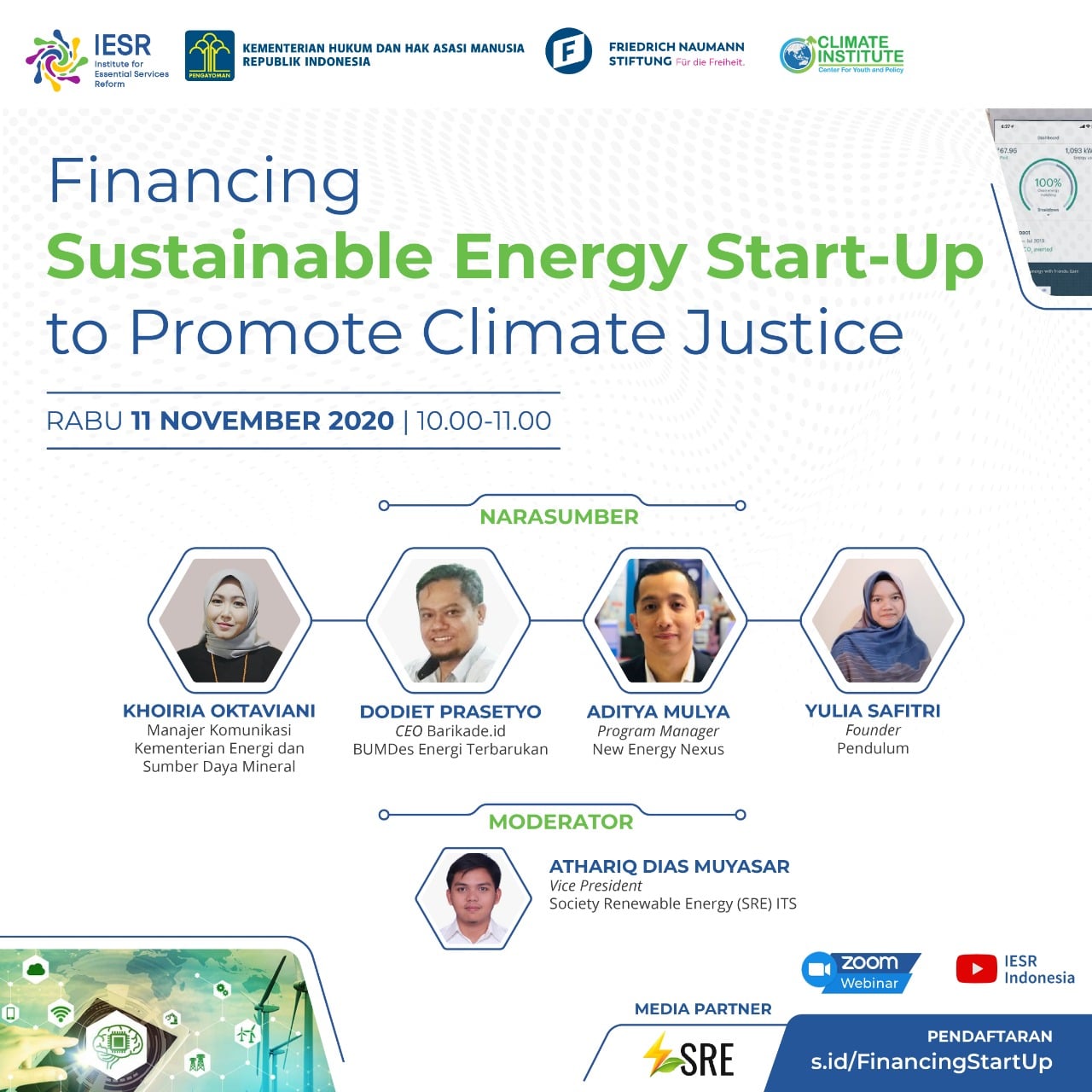
Financing Sustainable Energy Start-Up to Promote Climate Justice
The climate crisis is an environmental challenge at the global level. Countries in the world, including Indonesia, are trying to reduce the rate of earth’s temperature to less than 1.5ºC. If it is not anticipated and handled, the climate crisis will affect all sectors and all groups, so that mitigation and adaptation plans and actions are needed that consider justice and the rights of community groups, especially vulnerable groups (climate justice). Every community group has the right to a clean, sustainable, and healthy environment, clean air, and opportunities to improve welfare and a decent standard of living so that the paradigm of climate justice becomes important.
In accordance with the Paris Agreement, countries in the world that have ratified this agreement are committed to reducing their greenhouse gas emissions through various actions as outlined in the Nationally Determined Contribution (NDC) document. One of the efforts to mitigate the impact of the climate crisis is the transition to an energy system and a low-carbon economic system. The development of renewable energy technology and the increasingly competitive costs of generating electricity from renewable energy has made renewable energy, especially solar and wind, the energy source for electricity generation with the highest growth in recent years.
Indonesia is a country with abundant renewable energy potential and reaches 442 GW (Ministry of Energy and Mineral Resources, 2018). The government through the National Energy Policy (KEN) and the National Energy General Plan (RUEN) also targets the renewable energy portion of 23% of the primary energy mix by 2025. However, until now, the development of renewable energy in Indonesia is still minimal, for example, the potential for hydropower. only 8% of the potential is utilized and solar power is still less than 0.1% of the potential. Based on the IESR analysis (2019), in addition to government costs through the state budget, an additional investment of US $ 3-5 billion is required per year to achieve the RUEN target. This condition requires the participation of many parties, including the young generation and their business innovations.
However, in practice access to funding sources in Indonesia for renewable energy innovation is still limited. Green financing or green investment; financing that focuses on sustainable project priorities, is still not widely available.
The participation of the younger generation in realizing climate justice, reaching vulnerable groups of people, and contributing to the acceleration of the energy transition in Indonesia is considered important and needs to be continuously encouraged. Their involvement has various forms, from voicing the importance of climate justice and energy transition, building a community that cares about these issues, to developing green innovation and entrepreneurship through various start-up companies.
Therefore Friedrich Naumann-Stiftung for Freedom (FNF) and the Institute for Essential Services Reform collaborated to open discussion space for the younger generation and other relevant stakeholders, with the hope of creating a potential network for the development of green innovation from youth groups.
Panelists
1. Khoiria Oktaviani, Manajer Komunikasi, Kementerian Energi dan Sumber Daya Mineral
2. Farida Zaituni, Lead Environment and Social Safeguard, PT Sarana Multi Infrastruktur
3. Aditya Mulya, Program Manager, New Energy Nexus
4. Yulia Safitri, Founder, Pendulum
Moderator
Habib Azizi, President, Society Renewable Energy (SRE) ITS

